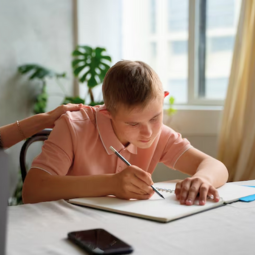- Home
- Conditions We Support
Ready to heal? Explore our personalized therapy and medication approaches
Overview
Learning disabilities
Learning disabilities (LD) are neurodevelopmental disorders that affect the brain’s ability to receive, process, store, and respond to information. Individuals with learning disabilities may have difficulties in one or more areas of academic or cognitive functioning, despite having average or above-average intelligence.
Here are some ways to help manage learning disabilities:
- Educational interventions: Individualized education plans (IEPs) can help provide accommodations and modifications to support the academic needs of students with learning disabilities in school settings. These plans may include accommodations such as extended time on tests, preferential seating, use of assistive technology, or modified assignments to help students access the curriculum and demonstrate their knowledge and skills.
- Specialized instruction: Providing specialized instruction tailored to the individual’s learning needs and strengths can help address specific areas of difficulty associated with learning disabilities. This may involve using multisensory teaching techniques, breaking tasks into smaller steps, providing repetition and reinforcement, and incorporating visual aids or manipulatives to enhance learning.
- Remedial education: Remedial education programs focus on building foundational skills in areas such as reading, writing, math, and executive functioning to help students with learning disabilities overcome academic challenges and achieve success. These programs may include targeted interventions, small-group instruction, or one-on-one tutoring to address specific areas of difficulty and promote skill development.
- Assistive technology: Assistive technology tools and devices, such as text-to-speech software, speech recognition software, graphic organizers, electronic organizers, or calculators, can help students with learning disabilities access information, complete tasks, and demonstrate their knowledge and skills more effectively. These tools can support independence, enhance learning, and accommodate individual learning preferences and needs.
- Behavioral interventions: Behavioral interventions such as positive behavior support (PBS), social skills training, or self-regulation strategies can help students with learning disabilities develop self-awareness, self-management, and coping skills to navigate challenges and succeed in school and social settings. These interventions focus on promoting positive behaviors, teaching problem-solving skills, and fostering resilience and adaptability.
- Parent education and support: Providing information, resources, and support to parents of children with learning disabilities can help them better understand their child’s needs, learn effective strategies for supporting their child’s learning and development, and advocate for their child’s educational rights and accommodations. Parent support groups, workshops, and educational materials can provide valuable guidance, encouragement, and networking opportunities for families.
It’s important to approach each individual with a learning disability holistically and tailor interventions to their specific strengths, challenges, and needs. By providing comprehensive, individualized support and interventions, educators, therapists, and parents can help individuals with learning disabilities unlock their full potential, build confidence, and achieve success in school, work, and life.


